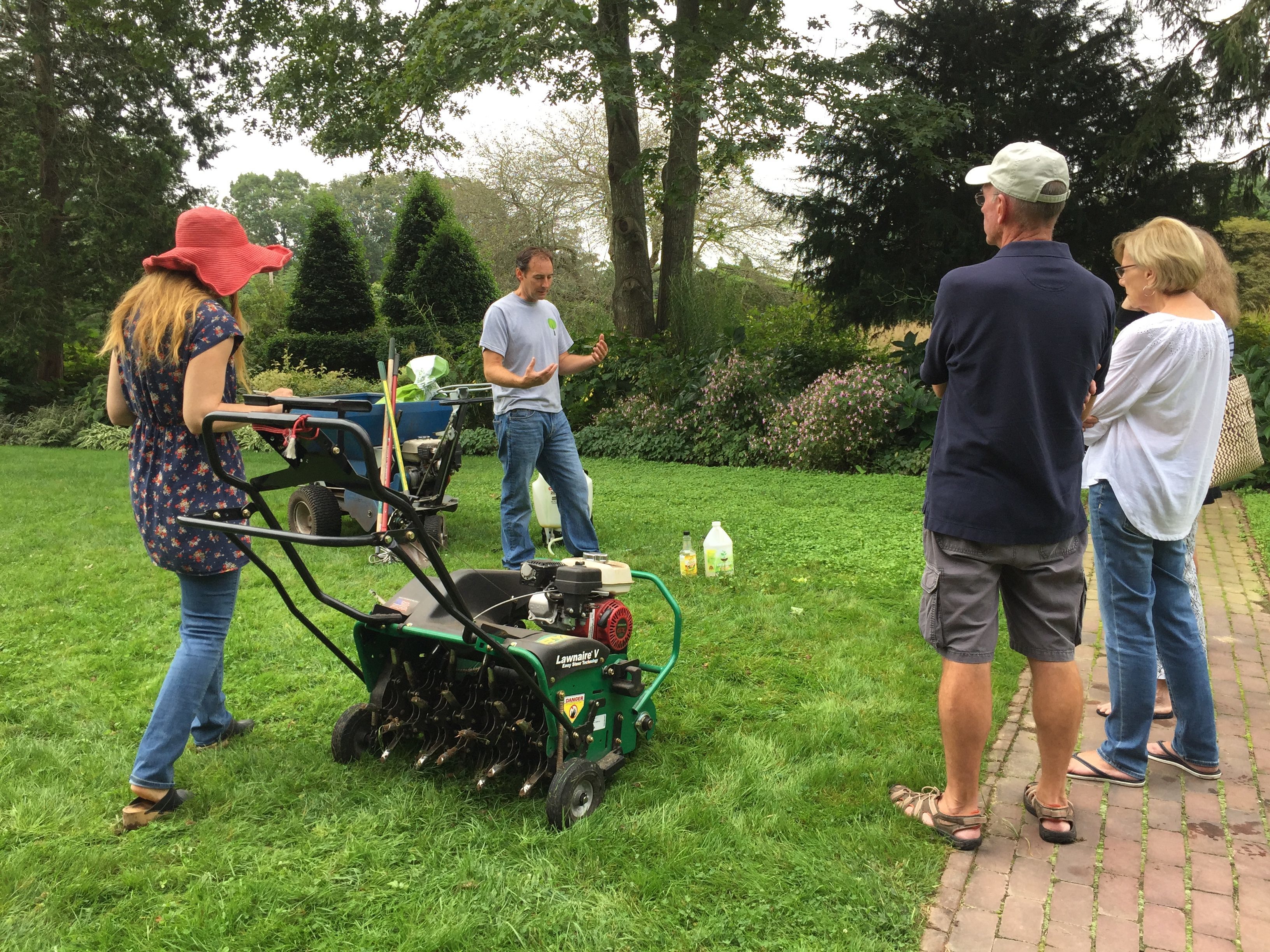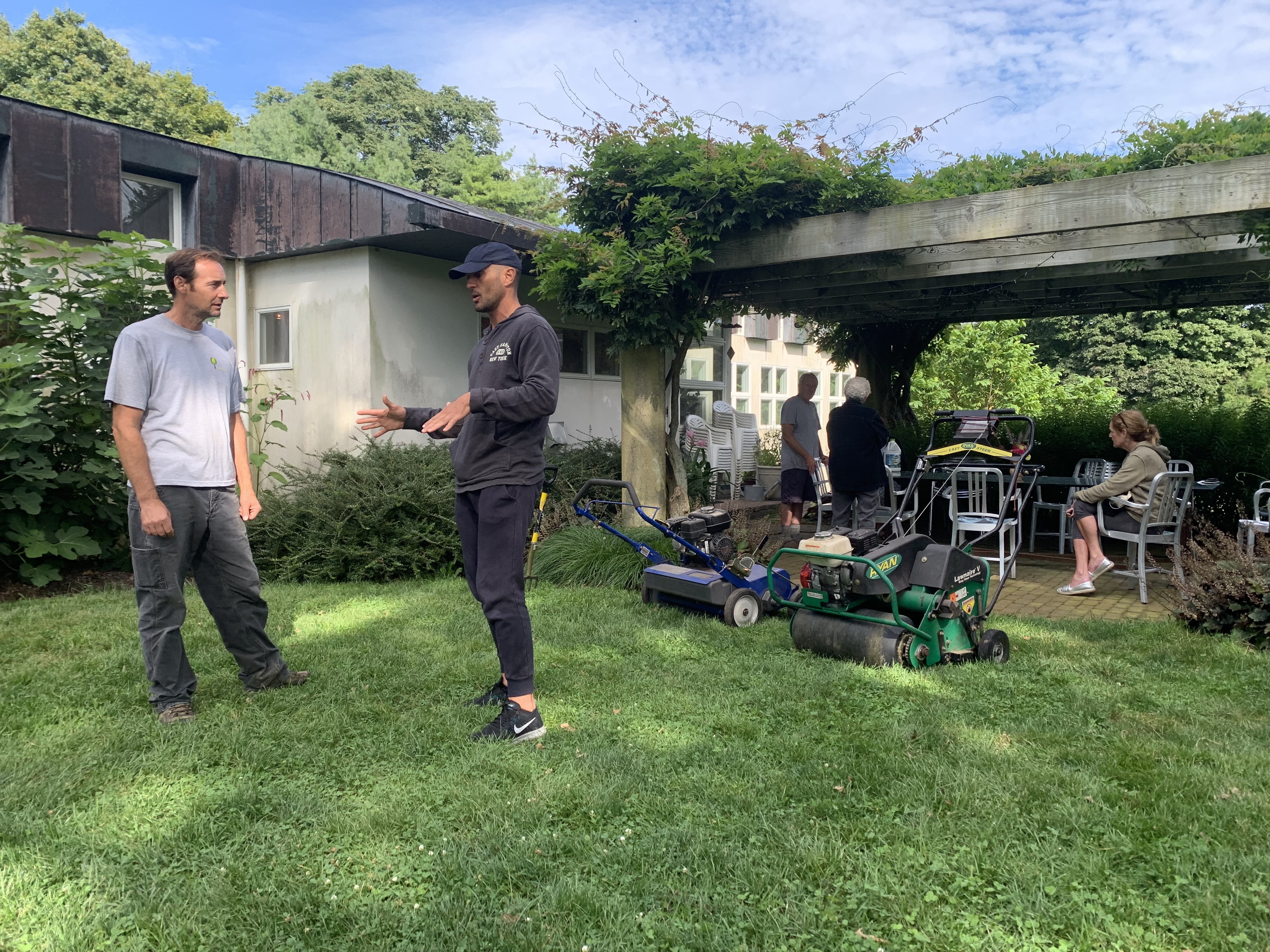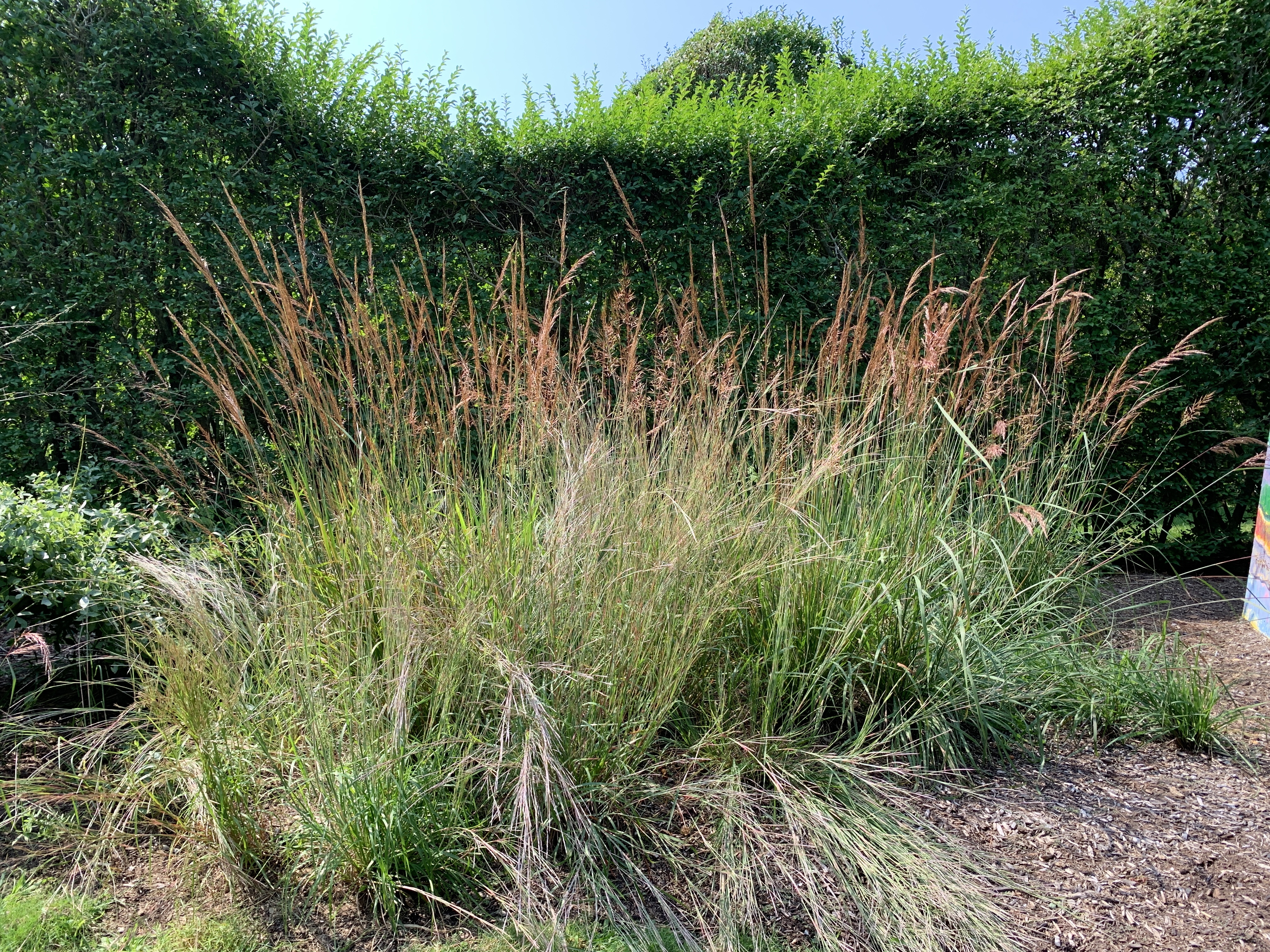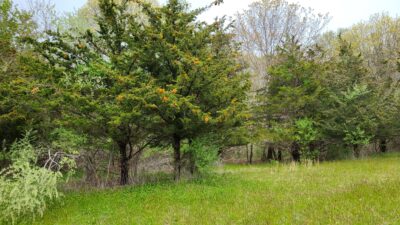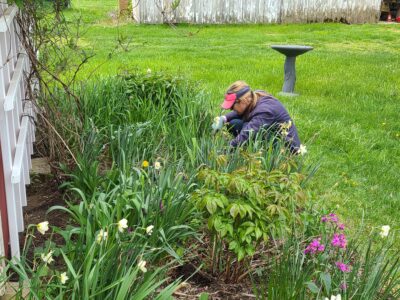Get Involved
Garden & Landscaping Advice from Bridge Gardens
Enjoy this collection of tips and tricks for starting your own garden and maintaining your landscape.
General Gardening
Rick and Paul on Compost
Summertime Rose Care
Dividing Ferns in Fall
Vegetable Gardening
Bridge Gardens Director Rick Bogusch shares tips and tricks for planting vegetables in your home garden.
Planting leaf lettuce in early April
Following up on the lettuce in early May
Newham Lettuce
Planting beets in early April
Planting carrots in April
Growing leeks in May
Landscaping
The Peconic Land Trust has partnered with Perfect Earth Project and Cornell Cooperative Extension of Suffolk County on sustainable lawn care and gardening programs at Bridge Gardens.
Since 2014, lawn and landscape professional Paul Wagner of Greener Pastures Organics has provided free lawn care advice weekly to homeowners and professional landscapers at Bridge Gardens from May to October.
Have questions: Email LawnExpert@PeconicLandTrust.org
If you missed past workshops with Paul, here are a few tips from over the seasons:
- Generally, the best grass seed blend for Long Island is 90% tall fescue and 10% bluegrass.
- Annual spring seeding of the lawn improves density and helps combat weeds in your lawn.
- The best grub control is to use beneficial nematodes, and the right time to apply nematodes is in September.
- Roses can be grown and managed organically, using organic fertilizers, Epsom salts for magnesium, and insecticidal soap for mite and aphid control.
- Plant Rosa Rugosa near your roses to attract ladybugs, beneficial insects that are voracious eaters of aphids.
- Black spot and powdery mildew on roses can be effectively controlled without heavy inorganic fungicides. Organic products, like Serenade or Rhapsody, have bacteria that help outcompete diseases, and there are soaps and oils that can provide curative control.
When asked about his connection to the Gardens, Paul said, “Being involved at Bridge Gardens is very rewarding because of all the people that I interact with there. People that come to learn along with Rick and the team at the Trust all love plants, gardening and protecting the environment. I feel like I am really able to make a difference.”
Thank you Paul and thank you to Perfect Earth Project and Cornell Cooperative Extension for your support and guidance in our sustainable lawn practices!
What's Up with My Lawn, Part I
What's Up with My Lawn, Part II
The Basics of Perfect Lawn Care from Perfect Earth Project
- Soil. The foundation for plant health, strong deep roots and nutrient uptake. Chemicals kill the natural immune systems that occur in soil. Healthy soil contains organisms that fight lawn and landscape pests, eliminating the need for continual toxic pesticide treatments.
- Water. Overwatering promotes shallow rooting, fungus diseases, mosquitoes, and nutrient run off. Do not start watering in early summer until the weather is truly dry. Monitor your irrigation settings: water infrequently and deeply. Once, or maybe twice a week for at least an hour is generally adequate.
- Mowing. Mow high: 3-4". Longer leaf blades collect more sun, provide more energy to roots and shade out weeds. Mow often: remove no more than 1/3 of a leaf blade at a time. Mow sharp: dull mower blades tear grass which invites fungus infections. Leave clippings: grass clippings return nutrients to the soil.
- Aeration. Aerate annually, more often in high traffic areas. Aeration reduces compaction and encourages better drainage and incorporation of nutrients.
- Fertilization. Feed lawns in early fall only. Spring Fertilization encourages fast, weak growth and invites disease problems in hot weather. Use compost or slow-release, organic fertilizer. Slow release fertilizers feed your lawn continuously over the course of the growing season, eliminating the peaks and valleys of chemical fertilization. They are also less likely to run off, reducing the risk for watershed pollution.
- Overseeding. Rake and over seed in fall when grass seed germinates best and weed seeds are dormant. Grass will then out-compete weeds in the spring.
- Diversity. Clover fixes nitrogen (natural fertilizer) and fills gaps in lawns. Dandelions are excellent aerators and are soon overwhelmed by the healthy turf they pioneered.
- Be Patient. Most good things take time, and a healthy, pest resistant lawn is no different. By making your lawn accustomed to gradual, rather than rapid change, you produce a balanced ecosystem that is resilient to environmental stresses around it.
Native Plants
Growing more native plants in your landscape offers significant benefits.
Native plants are adapted to the climate and soil conditions where they naturally grow and require much less water, fertilizer, and pest controls. They sequester or absorb carbon in their root systems which also absorb water, reducing flooding and erosion. Just as importantly, they support biodiversity by providing nectar, pollen and seeds for wildlife as well as an environment for these animals to live and breed.
Showcasing sustainable, low impact gardening practices is a primary focus of the educational workshops at Bridge Gardens, and that includes growing native plants. Garden Director Rick Bogusch has incorporated many new native plants into the beds at Bridge Gardens since the Trust received the donation of this 5-acre public space in 2008. These plants offer four-season beauty for your landscape and there are many from which to choose.
In his monthly Bridge Gardens e-newsletter, Rick has shared some of his favorites.
- American beech (Fagus grandifolia)
- American Groundnut
- American elders (Sambucus canadensis)
- Bitter switchgrass (Panicum amarum)
- Black Cherry (Prunus serotina)
- Bloodroot (Sanguinaria canadensis)
- Brown-eyed Susan (Rudbeckia triloba)
- Butter Nut Tree
- Common Witch Hazel (Hamamelis virginiana)
- 'Grey Owl' eastern red cedar (Juniperus virginiana)
- Hydrangea vine (Decumaria barbara)
- Milkweed
- New Jersey tea (Ceanothus americanus)
- Ninebark (Physocarpus opulifolius)
- Northern Bush Honeysuckle (Diervilla lonicera)
- Northern Spicebush (Lindera benzoin)
- Oak Trees
- Pawpaw (Asimina triloba)
- Redbud (Cercis canadensis)
- Red columbine (Aquilegia canadensis)
- Rudbeckia (Coreopsis tripteris)
- Sassafras (Sassafras abidum)
- Summersweet (Clethra alnifolia)
- Sweet goldenrod (Solidago odora)
- Switch grass (Panicum virgatum)
- Virginia bluebells (Mertensia virginica)
- Virginia Rose (Rosa virginiana)
- Virginia sweetspire (Itea virginica)
- Wild Bergamot (Monarda fistulosa)
- Yellowroot (Xanthorhiza simplicissima)
Zoom Panel: The Importance of Growing Native Plants: A Guide for Your Landscape
The panel includes:
- Rick Bogusch, Director of Bridge Gardens
- Brian Smith, V.P. of LI Native Plant Initiative
- John Witzenbocker, Owner/beekeeper of Sag Harbor Honey
- Moderated by Jessica Damiano, contributing garden writer for Newsday
For additional resources from the panelists check out our blog post here.


